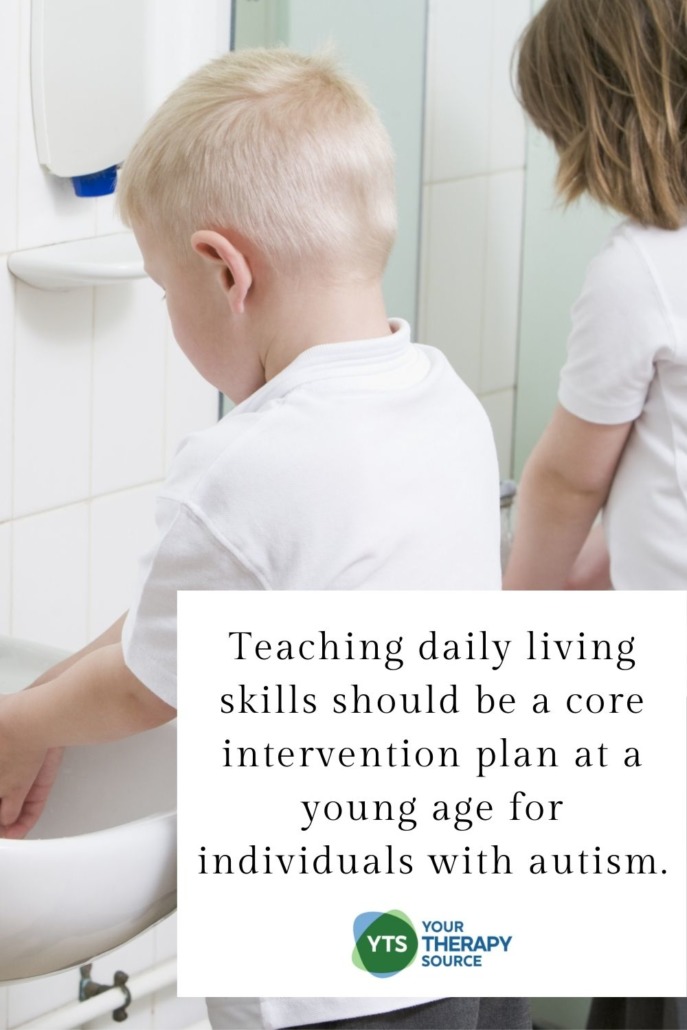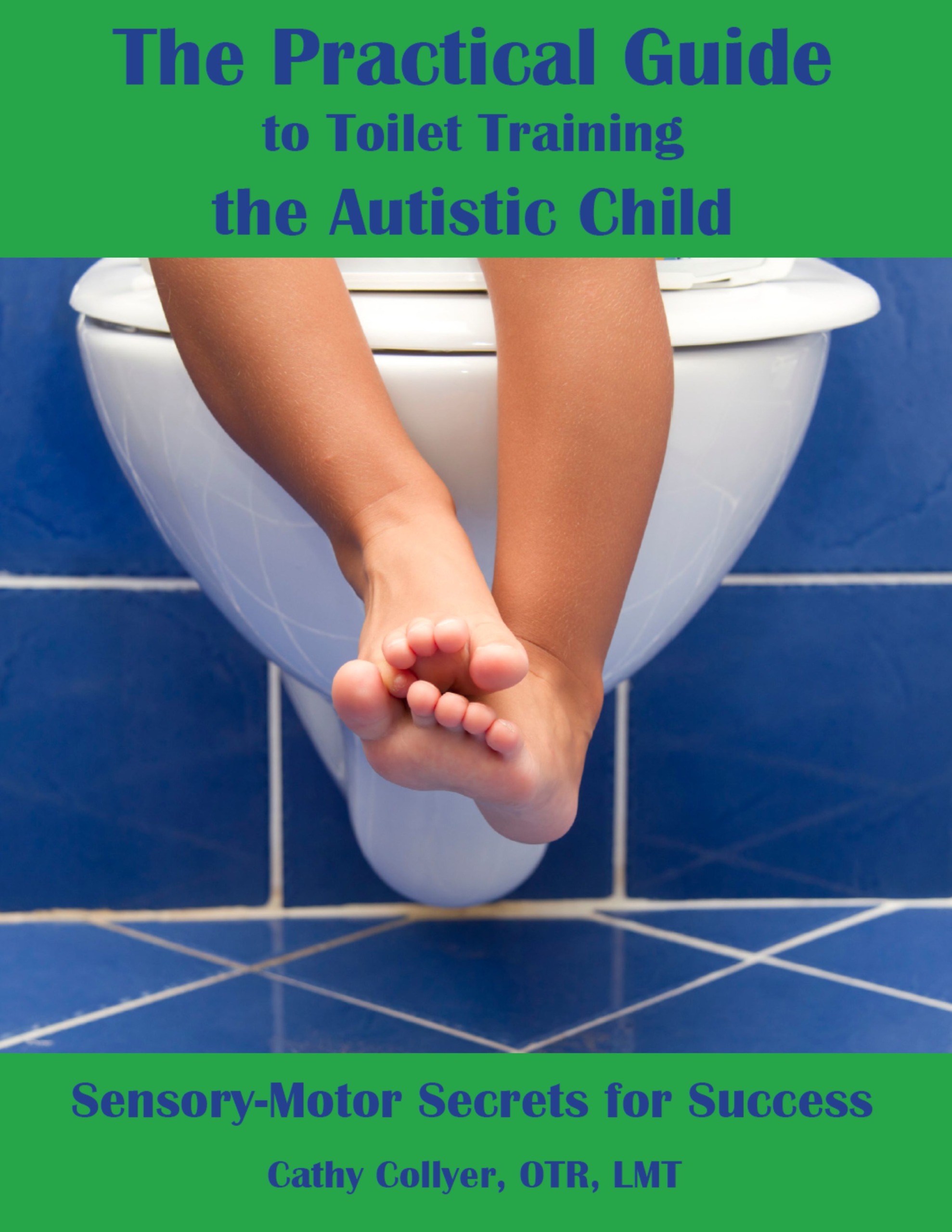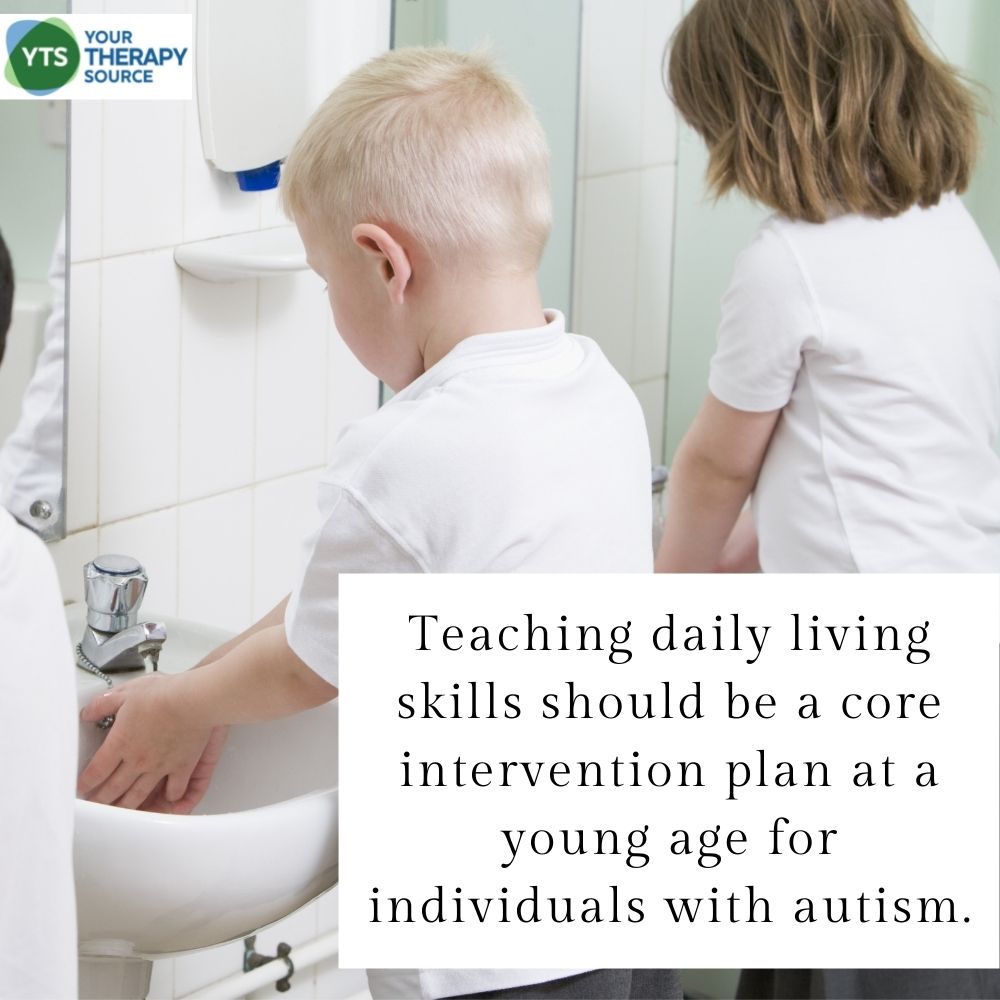Daily Living Skills and Young Children with Autism

The Journal of Early Intervention recently published research on daily living skills and young children with autism. They wanted to understand the role of early intervention teachers’ perceptions toward the educational placement of children with Autism Spectrum Disorder. This study explored the area of daily living skills and the educational placement of students in school.
Past research has indicated that the cognitive ability, age of intervention, academic achievement, and social behaviors of a child with autism affect teachers’ decision-making to decide on educational placement in regular or special education. Adaptive behavior also plays a role which includes communication, socialization and daily living skills.
WHAT ARE DAILY LIVING SKILLS?
Daily living skills are fundamental skills that allow children to successfully navigate their daily lives. These skills typically include a range of abilities, such as using the bathroom, hygiene, grooming, meal preparation, and money management. Young children often start learning daily living skills early in life, with parents and caregivers providing supervision and guidance. For example, young children may learn about basic hygiene through daily activities like taking a bath or brushing their teeth. As they grow older, they may also begin to practice cooking simple meals or counting out change at the store.
Overall, daily living skills are an important part of our daily lives, both for adults and young children alike. By developing these key capabilities at an early age, kids can become more self-sufficient as they continue to grow and mature. And in doing so, they will be better prepared to navigate the ever-changing world around them.

The Practical Guide to Toilet Training the Autistic Child
WHAT DOES THE RESEARCH SAY ABOUT DAILY LIVING SKILLS AND INDIVIDUALS WITH AUTISM?
Previous research on daily living skills and autism indicates the following:
- successful transition to school outcomes in preschoolers with autism has been linked with adaptive behavior.
- mastering daily living skills as a young child such as toileting and dressing is associated with positive transitions and independence of individuals with autism spectrum disorder into adulthood.
- reduction in parental stress when children with autism are taught daily living skills.
This study wanted to take a closer look at daily living skills and school placement recommendations in Singapore. In this country, at the age of 6 years old, the teachers and parents help to make a decision for the children to enter primary mainstream or special education schools.
RESULTS OF THIS STUDY ON DAILY LIVING SKILLS AND TEACHER’S PERCEPTIONS
The researchers wanted to determine if the daily living skills of children with autism influence the teachers’ perception of school placement and how age influences this decision.
There were 118 teachers who participated in the study. Each participant was provided with a fictional student and information about their daily living skills. There were three conditions where the students either needed (1) full assistance, or (2) partial assistance, or (3) no assistance in daily living skills. The teachers were then asked to rate whether it would be appropriate for the students with autism to enter mainstream education.
The results indicated the following:
- teachers perceived children needing full or partial assistance in daily living skills to be less suitable for mainstream education.
- the child’s age also influenced the teachers’ perceptions – for example, higher ratings to enter the mainstream school were given for 6-year-olds who were independent at daily living skills compared to 4-year-olds.
The researchers concluded that teaching daily living skills should be a core intervention plan at a young age for individuals with autism. Teachers should be aware of the importance of daily living skills in individuals with autism and provide inventions that include daily living skills, motor skills, academic, social and communication skills.
REFERENCE
Nah, Y. H., & Ng, S. S. T. (2021). The Influence of Daily Living Skill Profiles in Preschoolers With Autism Spectrum Disorder on Early Intervention Teachers’ Perceptions of Their Educational Placement. Journal of Early Intervention, 10538151221091987.
RELATED INFORMATION
The Practical Guide to Training the Autistic Child
Daily Living Skills – Goals and Objectives
Manual Motor Skills, Daily Living Skills and Autism
Daily Life Skills as Part of a Routine Each Day



